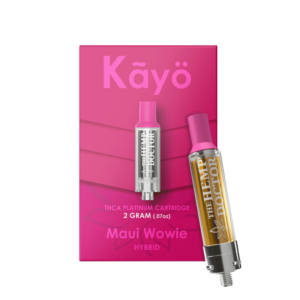Starting a cannabis business can be both exciting and challenging. A well-thought-out cannabis business plan is crucial to navigate the unique aspects of this industry. In this guide, we’ll explore the essential components of a successful business plan, ensuring your journey into the cannabis industry is as smooth as possible.
Understanding the Cannabis Industry Landscape
Before diving into your business plan, it’s essential to understand the current state of the cannabis industry. This industry is evolving rapidly, driven by legalization efforts across various regions.
As laws become more cannabis-friendly, the market presents a plethora of opportunities for new businesses. However, the varying regulations between states or countries can be complex, making comprehensive research a necessity. It’s important to grasp these varying legal landscapes and market trends, which can influence everything from consumer demographics to the kinds of products most in demand.
Industry experts predict significant growth, with projections estimating U.S. market valuations reaching over $67 billion by 2028. Understanding these numbers will not only inspire confidence in your business potential but also aid in crafting realistic goals.
Market research should include an analysis of the competitive environment, identifying major players, and assessing gaps in service or product offerings where your business could fill a niche.
Below are some of the most fundamental sections of a cannabis business plan.
Defining Your Business Objectives
Clarifying your business objectives is a foundational step in creating a successful cannabis business plan. Are you aiming to establish a dispensary, engage in cultivation, or venture into cannabis processing? Each requires unique strategies and resources.
Begin by envisioning what success looks like; perhaps it involves becoming a leading provider in your region, or expanding into multiple markets over time. These objectives should align with your personal ambitions, whether that means prioritizing sustainability, honing in on luxury offerings, or ensuring community engagement.
Defining precise objectives aids in setting a clear path and provides a basis for evaluating progress. For instance, consider what milestones you aim to achieve within the first year, such as revenue targets, customer reach, or brand recognition. By having tangible targets, like penetrating a specific market segment or introducing an innovative product line, you create a measurable framework for success.
Remember, well-defined objectives not only guide daily operations but also inspire stakeholders and investors through a coherent vision.
An additional layer in defining objectives involves legal considerations. As cannabis remains federally illegal in some regions, aligning your objectives with regulatory requirements is crucial.
Understanding how your objectives fit into the broader regulatory environment ensures you’re equipped to handle legal codes and licensing standards, thereby supporting compliance from the outset.
Identifying Your Target Market
Identifying your target market is imperative to the success of your cannabis business. It involves determining who your ideal customers are and understanding their needs, preferences, and behaviors.
This step demands a precise demographic analysis, focusing on age, location, income level, and even lifestyle choices. Analyzing consumer preferences not only aids product development but also tailors your marketing strategies to your audience’s specific wants.
For instance, if you’re targeting health-conscious consumers, you might focus on premium, organically grown strains or CBD products. If your target market skews younger, social media advertising and digital engagement might prove effective. The foundational goal here is to build customer personas—detailed portraits of your typical customers—to inform every element of your business plan from product development to targeted marketing approaches. Incorporating these details into your business strategy ensures that your offerings continually meet market demand.
Analyzing your target market also involves staying informed of emerging trends within the cannabis space. An effective business plan will consider not only present consumer preferences but anticipate shifts, such as the growing demand for edibles and infused beverages that are becoming popular in various consumer segments. By understanding these trends, your business can adapt quickly and maintain relevance in the ever-evolving cannabis market.
Developing a Comprehensive Marketing Strategy
A robust marketing strategy is integral to building a successful cannabis business. Start by delineating your unique selling propositions; what differentiates your brand in a saturated market?
Whether it’s superior product quality, sustainable practices, or unique branding, your strategy should highlight these aspects. With advertising restrictions specific to the cannabis industry, particularly on mainstream social platforms, creativity and compliance are key.
Consider community engagement; hosting educational events can solidify your brand as a trusted source of information and boost customer loyalty. Digital marketing will play a significant role, as will maintaining a strong online presence.
Leveraging search engine optimization (SEO), engaging content, and social media campaigns tailored to your audience can enhance visibility and drive traffic to your website or physical store. Furthermore, partnerships with influencers or collaborations with local artists present opportunities for creative outreach strategies.
Financial Planning and Projections
A thorough financial plan is the backbone of your cannabis business plan. Begin with a comprehensive budget detailing startup costs—licenses, equipment, staffing, and marketing expenses.
Accurate financial projections will establish the groundwork for assessing your business’s profitability and financial stability. Consider using templates and expert services to create detailed financial models. This approach will help identify funding requirements, potential revenue streams, and break-even points.
Outline possible funding avenues, such as private investors, venture capital, or even crowdfunding, if traditional loans are inaccessible due to federal restrictions.
Regularly updating your financial projections will allow you to adapt to market changes and refine your approach. Additionally, maintaining a detailed account of operational costs against profits can provide insight into areas that require optimization. Due diligence in this area will not only benefit investors but also aid in strategic decisions that influence long-term sustainability.
Navigating Legal Compliance
Navigating legal compliance is a keystone in the cannabis industry. Due to its complex regulatory environment, understanding federal, state, and local requirements is critical. These laws govern everything from production and processing to marketing and sales.
A comprehensive legal strategy will address compliance in all areas, ensuring you avoid costly penalties or closures. Regularly consulting legal professionals and staying informed about changing legislation will help protect your business and enhance your reputation within the industry.
Outlining Your Business Operations
Operational efficiency can spell the difference between a failing startup and a thriving cannabis business. This section should detail how your company will function on a day-to-day basis.
From supplier relationships to inventory management and quality control, every element needs to be planned meticulously. Consider the logistics of your supply chain, the technology for tracking and managing inventory, and the labor involved in maintaining operations.
Employing a seed-to-sale software solution can streamline operations and ensure compliance with industry standards. Efficient logistics management is integral, particularly if you handle both cultivation and distribution.
Further considerations include the development of standard operating procedures (SOPs). These should govern everything from plant care in cultivation to customer service in retail settings. Documenting these processes not only facilitates staff training but also ensures consistency, quality, and compliance across all operations.
Plan for scalability within your operations, allowing for expansion and growth as your business gains traction.
Setting a Clear Path with Your Cannabis Business Plan
Crafting a cannabis business plan may seem daunting at first, but by breaking it down into manageable sections, you can set your business up for success. Remember, a solid plan is not just about securing funding; it’s a roadmap for your business’s future. Keep refining and adapting your plan as you grow and learn in this evolving industry.







